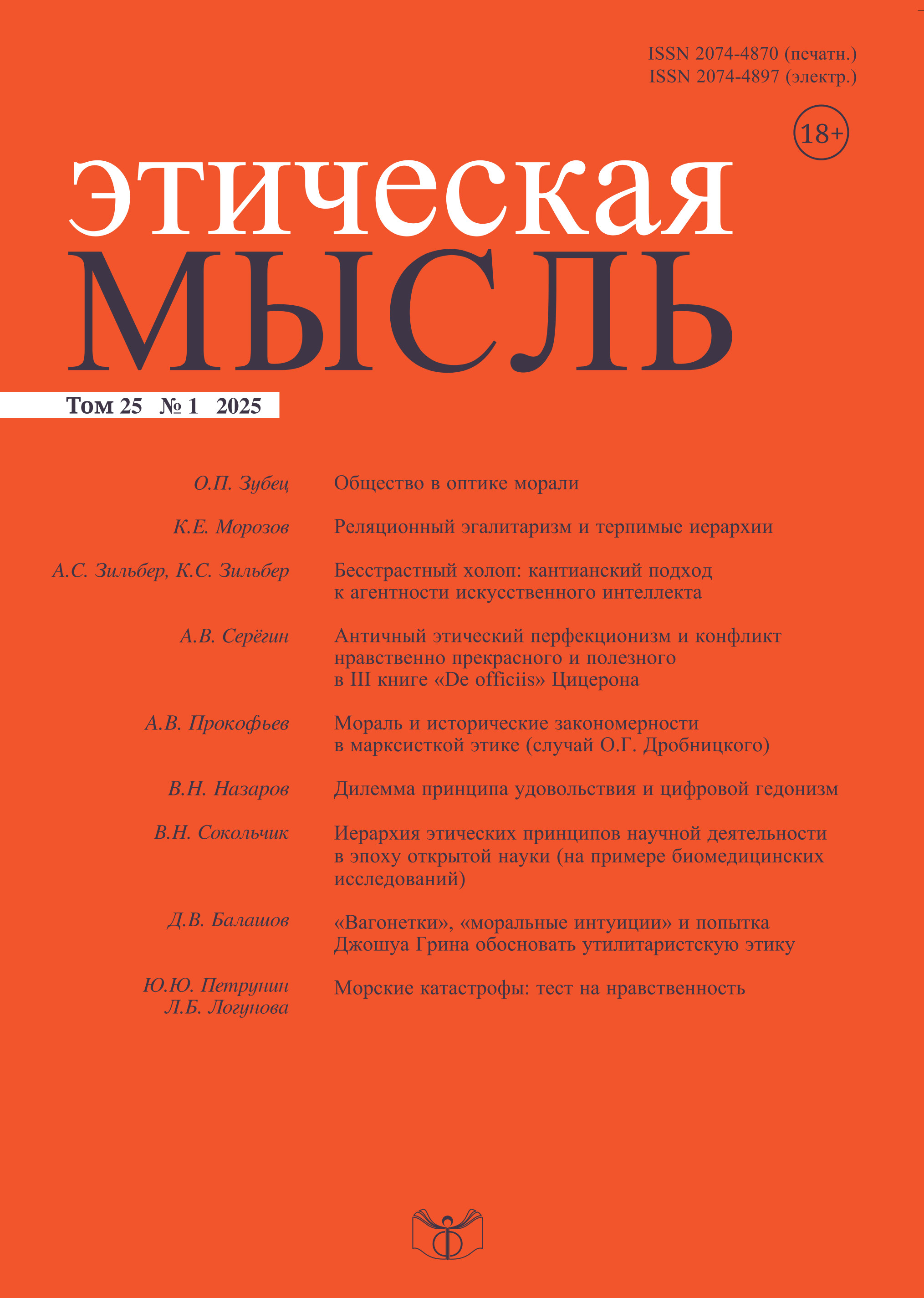Ancient Ethical Perfectionism and the Conflict of the Morally Honourable and the Beneficial in the III Book of Cicero’s ‘De officiis’
DOI:
https://doi.org/10.21146/2074-4870-2025-25-1-50-63Keywords:
ancient ethics, benefit, Cicero, peripateticism, perfectionism, stoicism, utilityAbstract
This paper examines how Cicero treats the problem of potential conflict between the “morally honourable” (honestum) and the “beneficial” (utile) in the III book of his treatise “On Duties” (De officiis). The author seeks to show that despite some original elements present in Cicero’s approach to this issue (in particular, the ones that may be called “proto-utilitarian”, which most of all attract the attention of modern commentators), at the basic level Cicero depends on the standard solution to this problem developed in the tradition of ancient ethical perfectionism: “the morally honourable,” i.e. moral virtue understood as the objectively perfect state of the human soul, as well as the morally correct activities resulting from it, represent either the only good for a human being (in the rigorist version of perfectionism) or (in its non-rigorist version) the greatest good, which outweighs all possible non-moral benefits; but a good is by definition beneficial to its possessor; hence, the “morally honourable” is either the only thing that is beneficial to the agent or that which is of the highest benefit to him and outweigs everything else. The author also demonstrates that this perfectionist logic adopted by Cicero fits rather poorly with his interpretation of the notion of the “beneficial” itself since, wherever he explicitly reveals its content, he clearly means exclusively non-moral benefits, whereas from perfectionist standpoint the beneficial either is completely reduced to moral benefits (in the rigorist version) or, at least, admits of moral benefits alongside non-moral ones (in the non-rigorist version).









